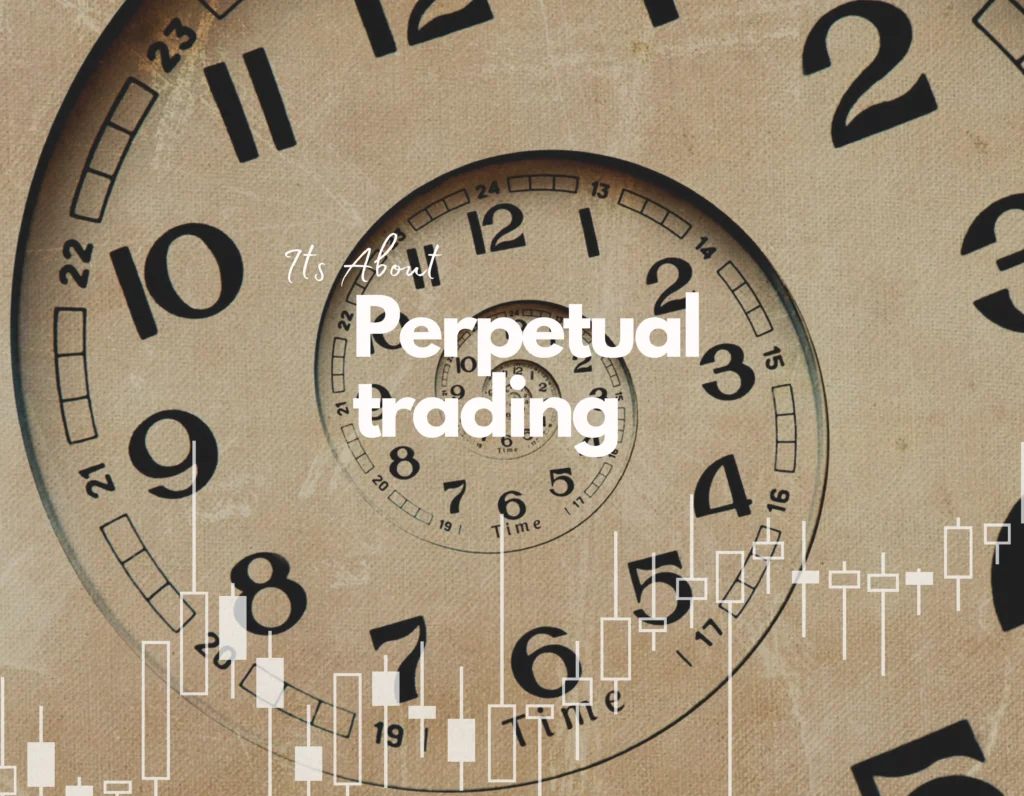Introduction
In the ever-evolving landscape of crypto trading, one concept stands out for its potential to redefine the way traders engage with digital assets: Future Perpetual crypto Trading. This innovative approach allows traders to speculate on price movements without owning the underlying asset, offering a new level of flexibility and opportunity in the market. In this comprehensive guide, we will explore the ins and outs of Future Perpetual Crypto Trading, from its fundamental principles to advanced strategies, benefits, and platform selection.

Table of Contents
Understanding Future Perpetual Crypto Trading
Future Perpetual Crypto Trading involves the use of perpetual contracts, also known as perpetual swaps, to bet on the price movements of cryptocurrencies. Unlike traditional futures contracts, perpetual contracts do not have an expiration date, allowing traders to hold positions indefinitely. These contracts settle based on the current price of the asset when the trade is closed, making them highly versatile instruments for speculation and hedging.
Key Components of Perpetual Future Contracts
- Leverage: One of the defining features of perpetual contracts is leverage, which allows traders to amplify their positions with borrowed funds. While this enhances the potential for profits, it also heightens the susceptibility to losses, This requires thorough risk management to be implemented.
- Margin Trading: Perpetual contracts are traded on margin, meaning traders only need to deposit a fraction of the contract value to open a position. This enables traders to access larger positions with less capital, but it also exposes them to higher risks, including the possibility of margin calls.
- Funding Rates: Perpetual contracts incorporate funding rates, which are periodically exchanged between long and short traders to maintain price equilibrium with the spot market. Traders need to understand how funding rates work, as they can affect the cost of holding positions over time.
Strategies for Future Perpetual Cryptocurrency Trading
- Long and Short Trading: Traders can go long on perpetual contracts if they anticipate a price increase or short if they expect a decline. By accurately predicting price movements, traders can profit regardless of market direction.
- Hedging: Perpetual contracts can be used for hedging purposes, allowing traders to mitigate risk by offsetting losses in one position with gains in another. Hedging strategies can help protect against adverse market movements and stabilize portfolio performance.
- Scalping: Scalping involves making rapid trades to capitalize on short-term price fluctuations. Traders execute multiple trades throughout the day, aiming to capture small profits from each trade. Scalping requires quick decision-making and precise timing but can be highly profitable in volatile markets.
- Spread Trading: Spread trading involves simultaneously buying and selling correlated assets to profit from the price difference between them. Traders identify assets with similar price movements and execute spread trades to exploit price differentials.
- Arbitrage: Arbitrage involves exploiting price discrepancies between different crypto exchanges or trading pairs to make risk-free profits. Traders buy assets on one exchange at a lower price and sell them on another exchange at a higher price, capturing the price differential as profit.
Benefits of Future Perpetual Crypto Trading
- Increased Leverage: Perpetual contracts offer leverage, allowing traders to access larger positions with less capital. While it can enhance potential gains, it also raises the likelihood of losses, necessitating prudent risk management..
- 24/7 Trading Availability: Future Perpetual Crypto Trading operates around the clock, enabling traders to seize market opportunities at any time, day or night. Unlike traditional markets with fixed trading hours, cryptocurrency markets are open 24/7, providing flexibility for traders.
- Lower Transaction Costs: Perpetual contracts typically have lower transaction costs compared to traditional futures contracts. This is because there are no fees associated with holding or rolling over contracts, making perpetual trading more cost-effective for frequent traders.
- Increased Liquidity: Perpetual contracts tend to be more liquid than traditional futures contracts, as they do not have an expiration date and can be traded continuously. This ensures swift execution of trades at competitive prices and reduces the risk of slippage.
- Diverse Trading Opportunities: Future Perpetual Crypto Trading offers a wide range of trading opportunities, from long and short trading to hedging, scalping, and arbitrage. Traders can choose strategies that align with their risk tolerance and investment objectives, providing flexibility and customization in their trading approach.
Risks of Future Perpetual Crypto Trading
- Market Volatility: Crypto markets are known for their volatility, with prices often experiencing rapid and unpredictable fluctuations. This volatility can lead to significant gains or losses for traders, depending on their positions and market conditions.
- Leverage Risks: Leverage has the potential to boost profits but concurrently escalates the likelihood of losses. Traders need to be mindful of the potential downside of leverage and employ risk management strategies to protect their capital.
- Funding Costs: Perpetual contracts incorporate funding rates, which can affect the cost of holding positions over time. Traders need to consider funding costs when holding positions for extended periods, as they can impact profitability.
- Security Concerns: Crypto exchanges are susceptible to hacking and security breaches, posing risks to traders’ funds and personal information. Traders should choose reputable and secure exchanges to mitigate security risks and protect their assets.
- Regulatory Uncertainty: Crypto markets are subject to regulatory uncertainty, with regulations varying by jurisdiction. Traders need to stay informed about regulatory developments and comply with applicable laws and regulations to avoid legal and compliance issues.
Choosing a Platform for Future Perpetual Crypto Trading
When selecting a platform for Future Perpetual Cryptocurrency Trading, traders should consider several factors, including:
- Security Measures: Choose platforms with robust security measures, such as two-factor authentication, SSL encryption, and cold storage for funds.
- Liquidity Levels: Opt for platforms with high liquidity to ensure swift execution of trades at competitive prices.
- Fee Structures: Compare fee structures of different platforms, including trading fees, funding rates, and withdrawal fees, to minimize transaction costs.
- Range of Trading Pairs: Look for platforms that offer a diverse range of trading pairs to accommodate your trading preferences and strategies.
- Customer Support: Select platforms with responsive customer support services to address any issues or concerns promptly.
- Regulatory Compliance: Prioritize platforms that adhere to regulatory standards and comply with applicable laws and regulations to ensure a safe and compliant trading environment.
- Perpetual Crypto Trading is coming soon to our trading platform at defipe.io. Keep connected with us for updates.
Conclusion
Future Perpetual Crypto Trading offers a unique and innovative approach to trading digital assets, providing traders with increased flexibility, liquidity, and trading opportunities. By understanding the fundamentals of perpetual contracts, employing effective trading strategies, and choosing reliable platforms, traders can navigate the crypto market with confidence and capitalize on its potential for profit. However, it’s essential to remain vigilant of the risks associated with crypto trading and adopt sound risk management practices to safeguard investments and achieve long-term success in this dynamic and evolving market.
Share this content:

